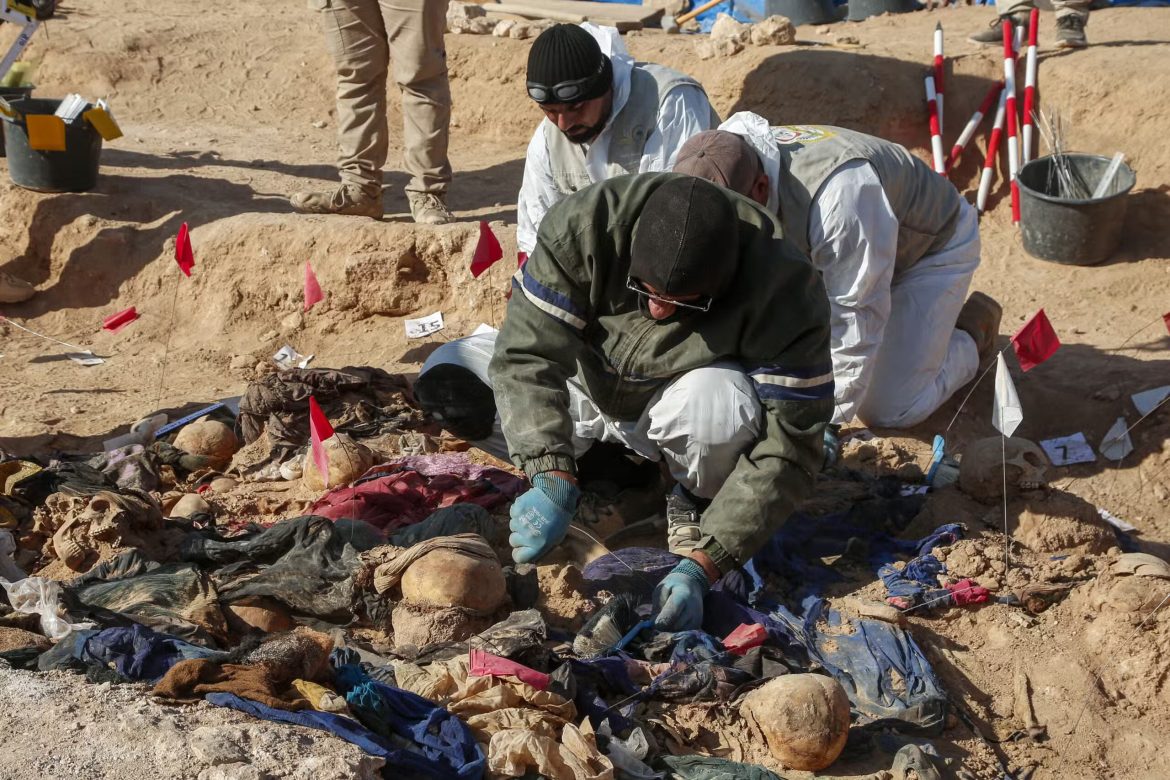Iraqi authorities are conducting an operation to exhume the remains of approximately 100 Kurdish women and children, believed to have been killed during the 1980s under Saddam Hussein’s regime.
The mass grave was discovered in the Tal al-Shaikhia area of Muthanna province, in southern Iraq, located 15 to 20 kilometers from the main road, according to official sources.
The mass grave is thought to be connected to the Anfal campaign, a series of military operations carried out by Hussein’s regime against the Kurdish population.
This campaign led to the deaths of tens of thousands of Kurdish civilians and fighters, and the destruction of many villages.
Forensic teams are exhuming the remains in an effort to identify the victims and collect evidence related to the deaths.
This operation is part of the Iraqi government’s broader initiative to uncover mass graves from the period and provide closure for the families of the victims.
Iraqi officials have stated that this operation is significant for historical documentation and for providing justice to the families of the victims.
The exhumation is being conducted in partnership with international organizations specializing in forensic analysis and mass grave documentation.
The discovery of this mass grave is part of ongoing efforts in Iraq to address past human rights abuses.
Several other mass graves have been uncovered in different regions of the country, many of which are linked to the Anfal campaign and other conflicts during Saddam Hussein’s rule.
The Anfal campaign, carried out from 1986 to 1989, involved mass killings, deportations, and the use of chemical weapons against Kurdish civilians.
The campaign has been classified as genocide by various international bodies, though debate continues over its legal designation.

